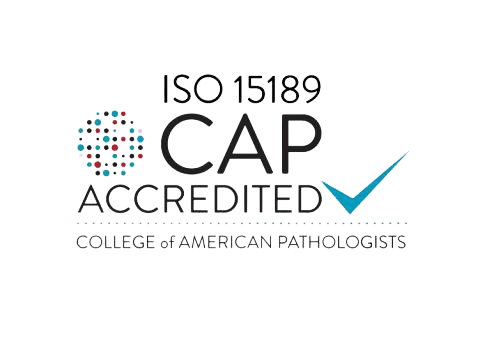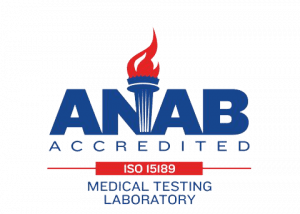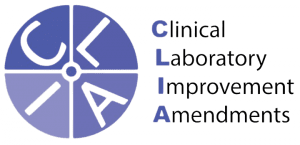Whether you’re going through an inheritance matter, a custody dispute, or a paternity case, you will need court-admissible DNA results. This blog will examine the specific factors that make DNA results reliable in court, since not all DNA tests are court-admissible. Think of it as the difference between an official government document and a personal note. Both can contain the same information, but only one meets the formal requirements for legal acceptance. Both reveal your face, but only one is useful legally.
In my experience as a genetic testing practitioner, proper paperwork and processes can make or break a case in court. The degree to which we carefully monitor and confirm everything is what distinguishes a court-admissible DNA test from a home DNA test. We’ll discuss the legal validity of DNA results and the significance of these processes.
Table of Contents
ToggleWhat makes a DNA test legally valid and acceptable in court?
Legal acceptability is achieved when a DNA test complies with the strict standards established by the courts.
• The sample collection must be observed by an impartial third party, not a friend or family member.
• Secondly, formal documents such as passports or driving permits must be utilized to verify the individual’s identification.
• Third, all participants’ photos must be taken while collecting.
• Fourth, participants’ identification and consent must be confirmed by signed legal documents.
• Finally, for DNA testing, an authorized testing facility, like Choice DNA, is needed.
These legal standards for DNA testing guarantee that the results will not be questioned. Since DNA evidence can have a life-altering impact on children, inheritance, and family relationships, courts require this level of assurance.
Why do courts demand DNA test findings that are legally admissible?
To protect all parties and maintain justice, courts demand legally admissible DNA results. Suppose someone could print fake DNA results from their home computer and use them as proof. That would be a disaster! Strict protocols that guard against fraud, tampering, and errors are followed while producing court-approved DNA results. Judges must be certain that the sample provider is who they claim to be.
They require evidence that the samples were not tampered with or contaminated. Legal DNA testing standards exist because the stakes are so high in child support, custody, inheritance, and immigration cases. Choice DNA Lab is aware of these obligations and complies with all regulations. At Choice DNA, everyone’s rights are safeguarded by certified DNA testing procedures that provide courts with assurance that results are accurate and true.
How is the integrity of DNA samples guaranteed by the chain of custody procedure?
Your DNA sample goes through a strict chain of custody. As a medical professional, I will explain how this protection operates:
Expert gathering: To prevent bias, your sample is collected by a trained DNA collector who is not acquainted with you.
Accurate documentation – The time, date, and precise location of the collection are immediately noted by the collector.
Identification by photo. For long-term records, pictures of each person who is providing the samples are taken with their identification credentials.
Verification and signatures. Each person signs documents attesting to their identification and indicating that they voluntarily supplied the sample.
Shipment tracking: Detailed records are kept of the package’s progress as it travels to the lab.
Laboratory logging: The lab records who handled the samples and when they were received.
Samples are kept in closed, temperature-controlled spaces with restricted access for security.
Final reporting: The results are sealed and forwarded to approved recipients via secure means.
Court-approved DNA results are hard to challenge on chain of custody grounds because each step is recorded, and validated.
Don't Ruin Your Relationship By Misunderstanding.
Get Accurate Answers With Our Paternity Test!
- Accredited Lab
- Accurate & Quick Results
- Private and Secure
- Affordable

How does a home DNA test differ from a court-admissible DNA test?
The main distinctions between these two testing methods are illustrated in the following straightforward comparison:
| Court-Admissible DNA Test | Home DNA Test |
| Samples collected by a certified, unbiased third-party professional | You collect samples yourself at home with no witness |
| Government-issued photo ID required and verified | No identification verification required |
| Photographs were taken of all participants during the collection | No pictures or visual documentation |
| Complete chain of custody with detailed documentation | No chain of custody tracking |
| Legal consent forms signed by all parties | Simple online agreement or no documentation |
| Results accepted in court and legal proceedings | Results not accepted for any legal purposes |
| Higher cost due to professional collection and documentation | Lower cost, typically for personal curiosity only |
| Tamper-proof seals and tracking throughout the entire process | Standard packaging with no security measures |
| Meets all federal and state legal DNA testing requirements | No legal standards required or followed |
Although the technology underlying both tests’ results can be similar in accuracy, but court tests include extra checks to reduce errors; only tests that are admissible in court have the records and protocols necessary to meet legal DNA testing criteria. The specialty of Choice DNA is offering tests that are accepted and recognized by courts.
What role does the laboratory accreditation play in DNA testing that is permitted by law?
Laboratory accreditation is like a stamp of approval that indicates that the lab knows what it’s doing. DNA testing must be conducted in an accredited facility that meets strict quality criteria for the results to be admissible in court. Labs are routinely inspected by organizations such as the American Association of Blood Banks (AABB) to ensure they maintain proper equipment, hire certified personnel, and follow the appropriate protocols.
These certifications attest to the regular fulfillment of legal DNA testing obligations. Choice DNA collaborates with CLIA-, AABB-, and CAP-accredited labs that undergo competency testing and routine inspections. This indicates that their relationship, paternity, and grandparent DNA testing services satisfy court-approved DNA result requirements by ensuring quality, precision, and dependability. Choice DNA may assist you if you’re looking for private and accurate DNA testing anywhere in the United States. Their nationwide network, verified collection procedures, and court-admissible testing services ensure that your results meet all legal DNA testing criteria.
Conclusion
Legal DNA testing regulations are in place to safeguard all parties’ rights in court cases. Expert DNA testing services are aware of these standards. They assist you throughout the steps, ensuring you don’t miss anything that might affect your court results. Choice DNA offer legally compliant testing through verified collection sites across the U.S. Always confirm that the provider’s procedures and reports meet your local court’s requirements. You can rely on Choice DNA’s court-approved DNA results whether you require paternity testing, relationship DNA testing, grandparent verification, or drug testing services.




















